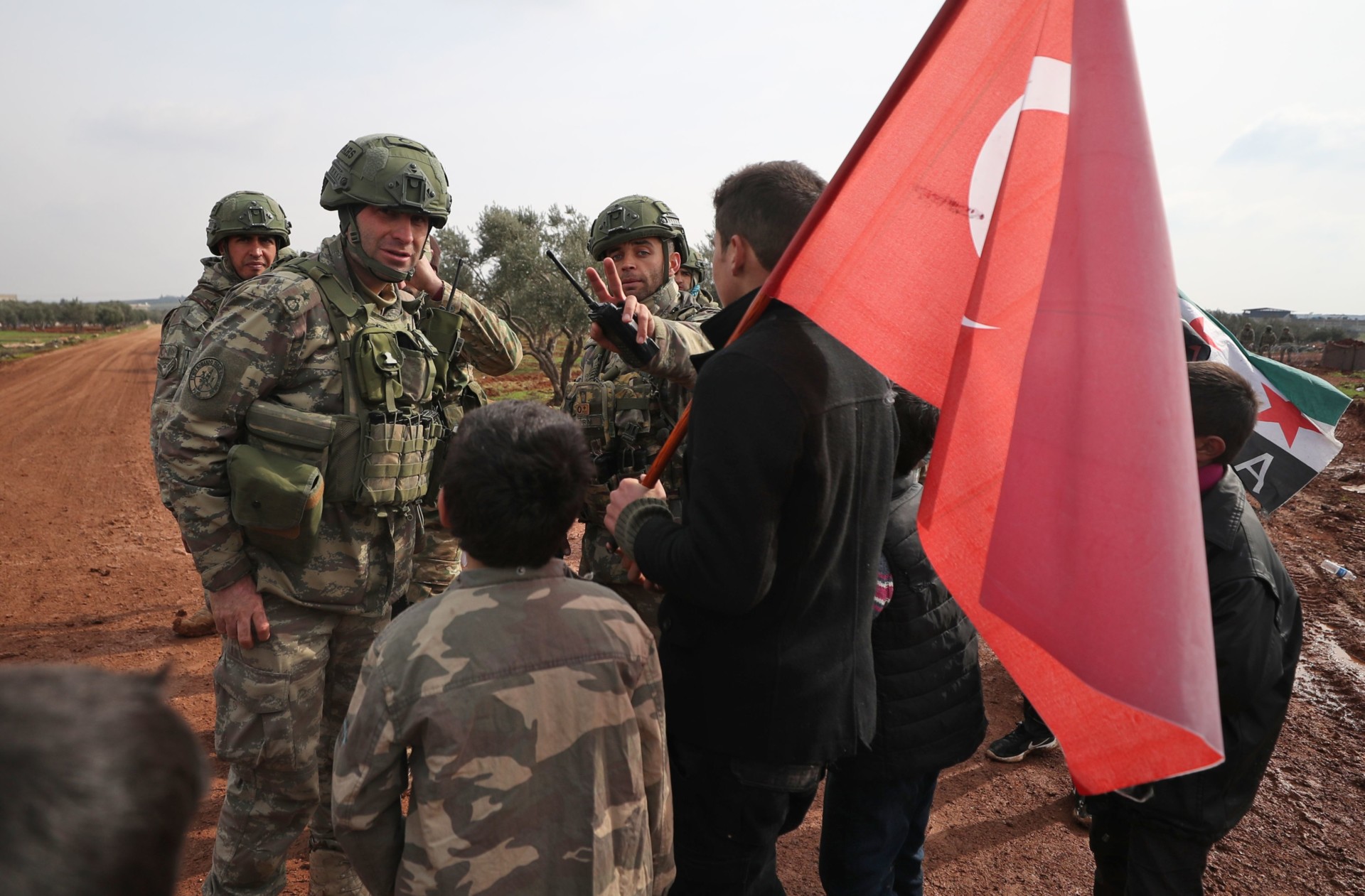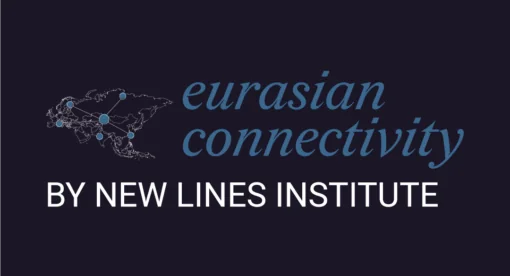In its approach to Syria, Cyprus, and Libya, as well as the United States and perhaps even Russia, Ankara has gambled on assertive policies to advance a range of interests in concrete ways. So far, this strategy has achieved some important short-term results, but it carries serious long-term risks. Specifically, it risks becoming a self-fulfilling prophecy, whereby Turkey’s aggressive response to perceived enemies and threats turns them into a reality. The challenge for Washington is to avoid giving in to Turkish pressure while remaining alert to opportunities to throw Turkey off this trajectory.
Since 2016, Turkish politicians and pro-government analysts have been eager to describe Turkey’s new foreign policy doctrine to anyone who will listen. Consistently, they have emphasized Turkey’s desire for greater independence in the world and less reliance on its erstwhile Western allies. They have also explained that Turkey will become more assertive in order to secure its interests, relying on hard power and overseas military interventions to do so. Finally, by way of explaining the rationale behind this approach, they argue that Turkey now faces an existential threat from an array of enemies, including the United States, its Syrian Kurdish partners, and a regional axis consisting of Saudi Arabia, the UAE, Egypt and Israel.
Convinced that Turkey’s July 15, 2016 coup attempt was an attack organized by foreign powers, they now believe that Turkey’s best defense is a good offense, and it must bring the fight to its enemies. Taking this doctrine at face value offers a surprisingly good guide to current Turkish foreign policy. One need not accept the validity of Ankara’s threat perception to conclude that it has indeed driven Turkish thinking in recent years and will continue to do so.
Turkey Takes Aim at the United States
Ankara’s new foreign policy approach can be seen most clearly in Turkey’s relations with the United States. For decades, Ankara has chafed at the unequal terms of the U.S.-Turkish relationship, citing, among other examples, Washington’s consistent opposition to Turkish intervention in Cyprus. And yet following the 2016 coup attempt, which many in Ankara genuinely believe was orchestrated by the United States, Turkish President Recep Tayyip Erdogan displayed a newfound commitment to resetting the terms of the relationship.
In buying Russian S-400 air defense missiles, for example, Erdogan declared Turkey’s independence from Washington. Where many American analysts expected Ankara would eventually back down under U.S. pressure, as it had in the past, Erdogan held firm, risking sanctions even as the Turkish economy faltered. He calculated – so far, at least, correctly – that Turkey was too important for Washington to risk unduly harsh punitive measures.
Ankara took a similarly forceful approach in northeast Syria. By repeatedly threatening military action and engaging in some even at the risk of confronting U.S. troops, Ankara eventually convinced President Donald Trump to allow a Turkish incursion against the YPG (the main Syrian Kurdish militia group and an affiliate of the PKK, which has been at war with the Turkish government since 1984) and to deny the Kurds’ territorial claims in the north. Amidst all this, the Turkish government also challenged Washington by arresting a number of U.S. State Department local employees and holding American pastor Andrew Brunson in prison for more than two years despite repeated high profile calls for his release.
As a result of these policies, Turkey has faced real consequences. Turkey’s purchase of the S-400s led to its removal from its role as a co-producer of the F-35 fighter jet, potentially costing Ankara more than $10 billion in eventual sales. After Turkey attacked the YPG in October 2019, the Pentagon suspended a secret intelligence sharing operation with Ankara, while Congress considered a host of sanctions that it could still implement. Moreover, Turkey’s currency has yet to fully recover from the dramatic loss it incurred when Trump threatened to “destroy” the Turkish economy in the summer of 2018 to secure the release of Pastor Brunson. And yet, from Ankara’s point of view, these may appear to be temporary setbacks. By enduring these and other consequences, the thinking goes, Turkey will eventually prove to Washington that it is not susceptible to U.S. pressure, thereby securing long term benefits in the form of a more egalitarian relationship.
Ankara has taken a similarly assertive approach on a range of regional issues as well. When the Republic of Cyprus, in coordination with Israel and Greece, moved to exploit newly discovered hydrocarbon resources off its southeastern coast, Ankara declared that it would thwart these efforts until its own maritime interests in the region were acknowledged. Turkey subsequently sent warships to threaten foreign companies conducting exploratory drilling in Cypriot waters, then sent drill ships to assert its own claims.
Ankara Asserts Itself in Other Theaters
Ankara complemented these efforts in the Eastern Mediterranean with its policy in Libya. In the fall of 2019, Turkey increased its support for the Tripoli-based Government of National Accord in its conflict against the Libyan National Army backed by Egypt, the Saudis, the United Arab Emirates, and Russia. In addition to sending drones, military advisors and 2,000 Syrian rebel fighters, Erdogan announced his willingness to deploy Turkish troops to defend the besieged Grand National Assembly. At the same time, Turkey signed an agreement with the Tripoli government which delimited the two countries’ Exclusive Economic Zone in the Mediterranean. By cutting off the economic zone that Greece, at least according to the U.N. Convention on the Law of the Sea, would be entitled to around the island of Crete, this agreement would allow Turkey to block tentative plans for a gas pipeline connecting Cyprus, Israel, and Egypt to southeastern Europe.
Now, Turkey’s assertive hard-power approach will face a more serious test in northwestern Syria. After backing Syrian rebels in their fight against the Assad regime and taking in millions of Syrian refugees, Turkey is facing the collapse of its Syria policy and a new wave of refugees as Assad’s forces advance into rebel-held Idlib. Turkey initially hoped that a series of negotiated cease-fires backed by Moscow could stop Assad’s advance. With this approach seemingly in shambles, Erdogan has now threatened that Turkey will, if necessary, use direct military force to check the regime and defend Idlib.
Turkey Finds Its Limitations
In the coming months, Turkey faces a difficult balancing act. Ankara is on the verge of a confrontation with Russian-backed forces in Libya and Syria. At the same time, Turkey is confronting the imposition of more serious sanctions from the U.S. Congress if it goes ahead with the planned activation of its S-400s missiles in April.
In trying to manage this situation, Ankara is unlikely to recalibrate its relations with the West as dramatically as some in Washington may hope. So long as Russia maintains the ability to out-escalate Turkey in Idlib (and Washington remains unwilling to invest the kind of resources in the situation that would change this), Ankara is likely to eventually accept a new Russian-mediated cease-fire. This would preserve some of the regime’s gains while recognizing, at least temporarily, a reduced Turkish sphere of influence. In other words, Ankara is unlikely to permanently break with Russia over this conflict, or even take steps like abandoning the S-400 purchase that could allow for a true rapprochement with Washington.
Recognizing this, however, Washington can still capitalize on Turkish-Russian tensions and the newly apparent limits of Turkey’s go-it-alone hard power policy. U.S. State Department and Pentagon officials should convey to their Turkish counterparts that to preserve the possibility of securing American support in future crises with Russia, Ankara should curb its most antagonistic policies. Specifically, this would entail not buying new Russian weapons systems, not escalating tensions in the Eastern Mediterranean, and not weaponizing its veto power in NATO.
Turkey’s suspicions of the United States and its newfound commitment to aggressively asserting its interests are not about to disappear. Yet the situation in Idlib should serve as a reminder that if Ankara, as it insists, wants to pursue a truly independent foreign policy, it can do so more effectively if it does not gratuitously alienate Washington.
Nick Danforth is a senior visiting fellow for the German Marshall Fund focusing on U.S.-Turkish relations. Previously, he worked as a senior policy analyst for the Bipartisan Policy Center’s national security program. Danforth received his M.A. from the School of Oriental and African Studies and his B.A. from Yale. He completed his Ph.D. in history at Georgetown University in 2015 and has written widely about Turkey, U.S. foreign policy, and the Middle East for publications including The Atlantic, Foreign Affairs, Foreign Policy, New York Times and Washington Post. He Tweets at @NicholasDanforth.
The views expressed in this article are those of the author and not an official policy or position of the Newlines Institute.







